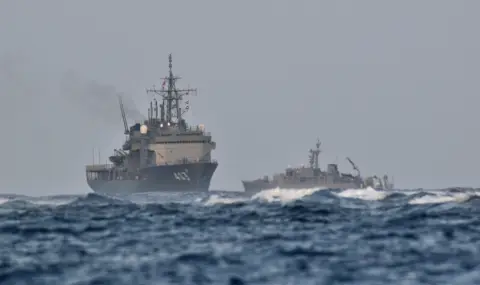Belgian media recently reported on mysterious activities in the North Sea. Data from a journalistic investigation indicate that Russia is using civilian ships for espionage, which has caused concern because of their proximity to critical infrastructure such as submarine cables, wind farms and pipelines, reports BTA.
The investigation revealed that 945 movements of 200 Russian vessels were closely monitored. Many of these vessels have been observed close to vital maritime infrastructure, often just one kilometer away. This pattern of movement is particularly noticeable off the Belgian coast, where at least five vessels have raised suspicions of intelligence gathering since the beginning of the year.
The task of identifying potential espionage activities has become more complex. The Belgian Maritime Safety Office notes that not only military and research vessels, but also seemingly harmless fishing boats can serve espionage purposes. A key indicator of suspicious behavior is when ships unexpectedly slow down. Moreover, concerns are not limited to Russian vessels, Chinese dual-use vessels are also under scrutiny.
Most of this suspicious activity was recorded just before Russia's attack on Ukraine two years ago, suggesting a strategic motive behind the espionage. The intelligence gathered could potentially facilitate sabotage operations against critical European infrastructure.
In response to these threats, several EU countries gathered in Ostend, Belgium, last April. The meeting aimed to strengthen joint efforts to extract energy from the North Sea and improve the interconnection of their energy systems. The countries that took part are Belgium, Denmark, Germany, the Netherlands, France, Great Britain, Ireland, Norway and Luxembourg.
